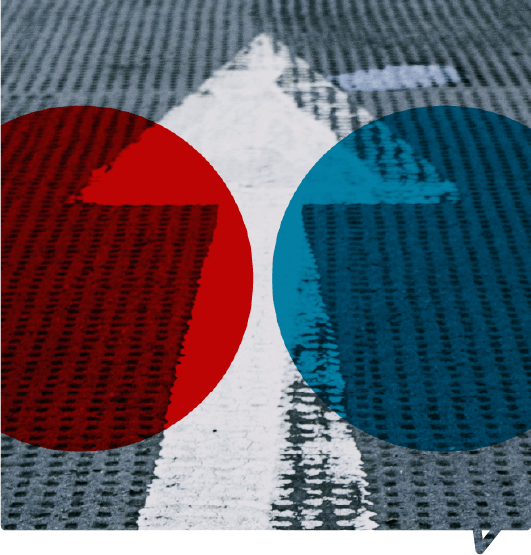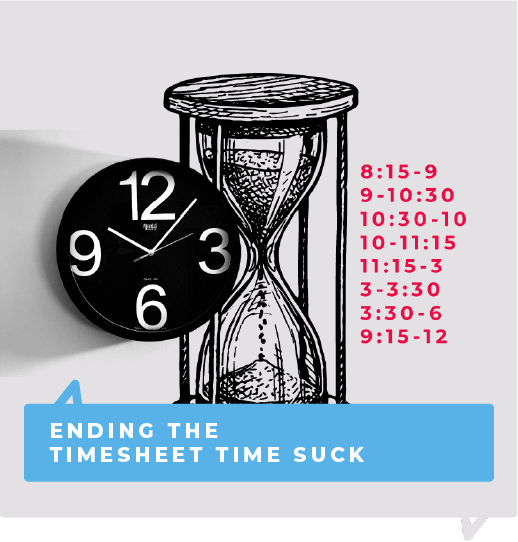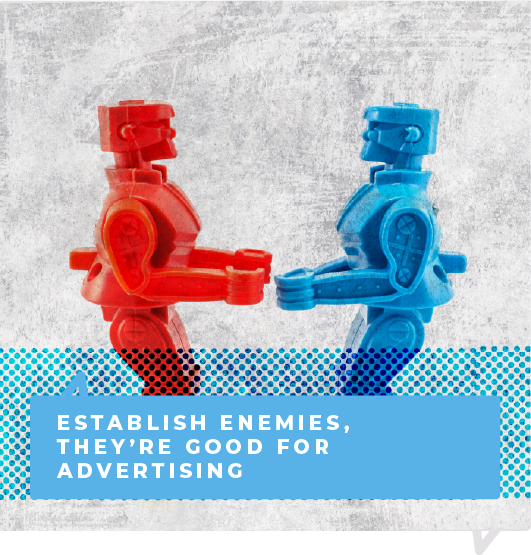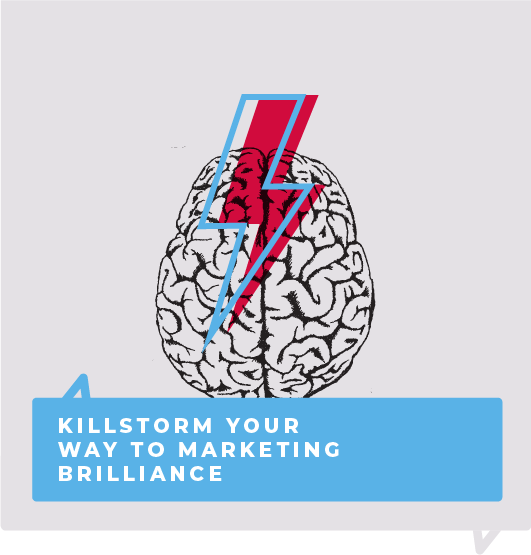
THE INCREASING VALUE OF POLARIZATION
In a time where call-out culture can make or break you, organizations are choosing to make polarizing choices for their brands - which could yield huge risks or rewards.
For better or worse, over the past several years, we have become increasingly more willing to stand firmly on one side of an issue instead of finding common ground. Democrat or Republican, mask or no mask, neon orange or traditional car color schemes (we're getting to that one).
This creates a bit of a dilemma for brands - stay in a "safe" space to avoid consumer backlash or take the arguably more valuable route and decide to create something that some people love (and others may hate).
ICE CREAM AND ACTIVISM
Everyone loves ice cream but not everyone loves Ben & Jerry's. The Burlington, VT-based company has been one of America's top makers of ice cream since the late 1970s with their variety of fun, over-the-top flavors. But, as anyone familiar with the company's history knows the company is a strong proponent of being outspoken on issues they are passionate about. This should come as no surprise from company co-founders who are willing to get arrested -
The company's Global Head of Activism (yes, they have someone solely responsible for activism initiatives), Christopher Miller, meant it when he said the company's statement on George Floyd's death "was not a marketing exercise" and that companies that have been silent shouldn't worry about entering an "uncomfortable" conversation now. They've also been vocal on other often polarizing issues such as LGBTQ rights, artificial growth hormone use in cows, GMOs, global warming and more.
Ben & Jerry's social activism survived their purchase by Unilever in 2000 and continues to strike a chord with their customers, too, helping them grow from a gas station in Vermont to reported sales of $681.5 million in 2019 - success he equates to being willing to do more than "just sell ice cream." It's hard to deny his claim; people talk about Ben & Jerry's when they take a stance on polarizing issues. Interestingly, Unilever, which also owns the non-controversial, competing Breyer's brand, can use its brands to benefit from both the activism and the backlash.
NEON ORANGE, AN UNREQUITED LOVE STORY
In the context of marketing there is typically an instinct to appeal to as many consumers as possible - leading to ideas that are, by definition, the lowest common denominator. This leaves your products and brands in a gray space-no one really loves or hates you. While that may seem safe, the risk to a brand is that no one really cares about your brand or products when you hang out in a gray space. In highly visual categories, like automobiles and fashion, there is tremendous value in appealing to the human desire to be noticed.
When Porsche introduced "Lava Orange," an eye popping neon color scheme for one of their most popular models, the 911, many questioned the decision. Color choice is especially important considering that 60% of people say that color is one of the main factors they consider when purchasing a car. So this bold color left many wondering, "why design something with such a limited appeal?" According to lore, the car company's response was simple - yes, a lot of people may HATE this color, but the ones who love it, REALLY love it. Turning off a bunch of people who probably weren't going to buy a Porsche anyway, was worth it to create true fanatics.
FROM SHOES TO SOCIAL JUSTICE
Acknowledging that it's impossible to always please everyone, companies are best served figuring out what they believe is right for their culture, employees and customers and just doing it. Which, of course, brings us to Nike.
Long accused of sweatshop labor, Nike addressed the issue and has been increasingly involved in taking on business and social ethics issues ever since - their biggest, arguably coming in 2016, with Colin Kaepernick. Nike's decision to stand (or kneel, rather) with Kaepernick made a statement, and so did consumers when they made his "True to 7" shoe sell out on the first day. Nike's support of the Black Lives Matter movement, the LGBTQ+ community via its "Be True" line and other social causes has placed the company smack in the middle of the culture wars. But with many of the world's most popular - and socially active - athletes on its roster, the riskier move for Nike would have been to do nothing. Instead, actions that may seem unthinkable to most brands simply reflect Nike's commitment to its values and to the athletes that support them.
The embrace of polarization in messaging mirrors the increasing fragmentation of content. Throughout media, there has been a decrease in a willingness to appeal to the masses, instead calculating that it's better to identify an audience and demonstrate fierce support for the values they share. The resulting "controversies" resonate throughout the opposing media landscapes provoking boycotts and backlash from some members of the public, while increasing loyalty and affinity with others. Seems unsustainable for a variety of reasons but, in the meantime, we're all living by the immortal words of 90s hip hop icons, Black Sheep. "You can get with this. Or you can get with that."
The choice is yours.





